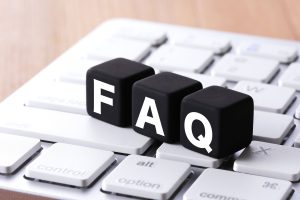Your SIPP questions answered
With so many pension products out there, choosing the right scheme to save for your retirement can seem daunting. A quick search on the internet reveals a huge number of questions on Self-Invested Personal Pensions, from what they are to what you can and can’t do with one. With a huge variety of SIPP queries out there, we’ve collected the most common ones and answered your most frequently asked questions.

What is a SIPP pension?
SIPP stands for Self-invested Personal Pension. They that give you greater flexibility and control when investing your money than most traditional types of pension. SIPPs help you save for your retirement and are therefore a long-term investment product. In normal circumstances, you can access your SIPP once you turn 55 (raising to 57 in 2028). The types of benefits you receive are dependent on your circumstances and as with all investments the value of your investment can go down as well as up and you may get back less than you invest.
Can I have a Self-Invested Personal Pension and a workplace pension?
You can open a SIPP even if you have another type of pension such as a workplace pension. This means you can pay into your SIPP as well as your other pension schemes. However, your pension annual allowance (the amount you can pay into a pension within a year, currently £40,000) applies across all your pensions. SIPPs benefit from the same tax advantages as a workplace pension and often give you a wider choice of investments than your salary sacrifice workplace pension will.

Is a SIPP a registered pension scheme?
Yes, SIPPs are registered with HMRC. Therefore, investment income is not subject to Income Tax. Also, realised profits are not subject to Capital Gains Tax, making SIPPs, along with other types of registered pension scheme, tax-efficient investment products.
Can I have a SIPP and a personal pension?
You can hold a SIPP and any other type of pension simultaneously. Your annual allowance (currently £40,000) will be spread across all the pensions you have.
Can I transfer my workplace pension to a Self-Invested Personal Pension scheme?
It is certainly possible to transfer your workplace pension into a SIPP, however, it is worth investigating the differences between the benefits associated with the old scheme and a SIPP and consider which may better meet your goals. At present, iSIPP does not accept employer contributions, however other people such as your spouse or partner can add to your SIPP as long as it is for the minimum amount. You should read the iSIPP Key Features Document to understand who can contribute to your SIPP.

When can I take my Self-Invested Personal Pension?
You can access your SIPP from the age of 55 (raising to 57 in 2028). From this age onwards it is possible to access your pension in multiple ways.
– Regular lump sums known as taxable or uncrystallized pension lump sums
– Income drawdown (or Flexi-access drawdown)
– Taking annuity from an insurance provider.
Is a SIPP a defined contribution scheme?
Yes, a SIPP is a defined contribution scheme. This means that the income received at retirement depends on; how much you pay in through your life, how investments perform, and the choices you make when you retire. The other type of pension is a defined benefit scheme(DB). DB schemes are not based on the size of your fund or investment performance. Instead defined benefit schemes promise a specific income at retirement.
Can I purchase property with my SIPP?
You can purchase physical commercial property in the UK through your SIPP. This is a very popular feature of SIPPs for many investors. You cannot buy residential property with your SIPP fund unless you are planning to convert it for commercial use . We currently do not accept contributions to your pension in the form or property or shares.

Can I borrow from my SIPP?
There is a common misconception that it is possible to borrow money from a SIPP, however, a SIPP cannot lend money to yourself, a business, or anyone related to you. The confusion probably arises because pension funds can lend to a sponsoring employer. As a SIPP is a personal pension there is no sponsoring employer. A SSAS on the other hand (Small Self-Administered Scheme) does have a Sponsoring Employer. Therefore, it is possible for an employer to borrow money from this kind of scheme.
Is a SIPP the right retirement solution for me?
A Self-Invested Personal Pension is a flexible pension scheme offering greater control over investment choices. Remember, SIPPs just like any pension, are an investment product and you may get back less than you originally invested. You should think about factors such as your attitude to risk to help you make a decision about whether a SIPP and which SIPP fund may be right for you. You can get impartial information on pensions from MoneyHelper, the governement’s guide to personal finances.
Disclaimer
The content of this article is for general information purposes only and should not be construed as legal, financial or taxation advice. You should not rely on the information contained in this article as legal, financial or taxation advice. The content of this article is based on information currently available to us, and the current laws in force in the UK. The content does not take account of individual circumstances and may not reflect recent changes in the law since the date it was created. It is essential that detailed financial and tax advice should be sought in both jurisdictions and any legal advice, if required.
This notice cannot disclose all the risks associated with the products we make available to you. When making your own investment decisions it is important you understand that all investments can fall as well as rise in value and it is possible you may get back less than what you have paid in. You should also be satisfied that any investments you choose are suitable for you in the light of your circumstances and financial position. You should seek financial advice if you are not sure of what’s best for your situation.








